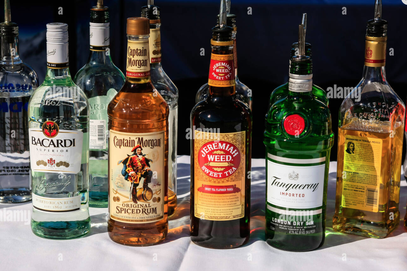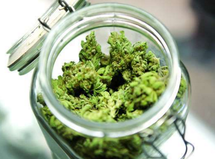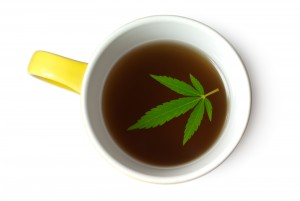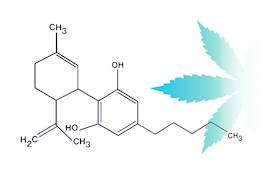|
During the holidays, we are often inundated with scenes, signs, and messages of alcohol drinking. What is it about this time of year that permits, or insists on drinking? Instead of the usual message, I thought it might be a good idea to discuss alcohol and Cannabis
According to data published in the journal, Health Policy, medical Cannabis in Canada was associated with a reduction in alcohol sales over an 8-year period. The results have important public health implications. From a public health perspective, the potential reduction in alcohol related harm might partly offset any increases in cannabis-related harm that Cannabis brings. The study found significant negative association between legal Medical Cannabis sales and liquor store alcohol sales, which means when Medical Cannabis sales increase alcohol sales go down. Each Cannabis sales dollar was associated with an average alcohol sales reduction of between $0.74 and $0.84. The study is like a 2017 US study where alcohol sales fell by 15% in several states following the introduction of medical Cannabis laws. The states experienced a significant decrease in the aggregate sale of alcohol, beer, and wine. The study authors concluded, “We feel that Cannabis and alcohol are strong substitutes.” Moreover, the effects of Medical Cannabis law are not short lived with significant reductions in sales for up to 24 months after passage. In another study published in 2021, data from the Youth Risk Behavioral Survey suggested that adolescents had a lower risk of initiating alcohol use in states with Medical Cannabis laws. Although, some demographics used more alcohol, tending to combine it with Cannabis. We know that Cannabis has a better safety profile than alcohol. For those who enjoy alcohol, it’s not the enemy. History indicates that prohibition is not the best way to reduce harm. I propose autonomy, acceptance, and education. As my mother likes to say, “Everything in moderation.” Alcohol when used in appropriate doses can be safe and beneficial. As well, some alcohol might pair nicely with Cannabis for an improved experience. So, as you plan your holiday parties, remember Cannabis and Alcohol dosage matters. You can keep track of your dosage with the CESC’s Dosing Project Be safe and don’t drive intoxicated. Does Cannabis actually relieve pain – or is something else going on?
Treating pain is by far the most common reason many millions of Americans use Cannabis. Often, the Cannabis is used instead of opiates or other prescription medicine. The therapeutic benefit is implicit. Most patients seeking medical Cannabis have pain. This is real world evidence. Is it belief or faith in Cannabis? The placebo effect is the suggestion or belief in a substance resulting in therapeutic benefit. Research suggests Cannabis and placebos provide similar pain relief, but that may not be the whole story. Many drugs have similar effects to placebo. These drugs are sold in the marketplace because they improve lives. In the end, does it matter how they work if they are safe and effective? Traditional studies are meant to be models of the real world. They are controlled studies, and, therefore, not ideal for studying variable, multi-agent botanicals. A recent study published in the Journal of the American Medical Association proposes that Cannabis is no better at relieving pain than placebos. The authors suggest that “positive expectations may contribute to the improvements” of pain. The conclusion was based on a literature review with selection bias in searching only published studies where single agent drugs are used. And in the real world, It’s clear that the plant’s broad spectrum of active ingredients is more desirable for pain. Cannabis products used by community consumers are not single agents. Harvard neuroscientists believe that the placebo effect is triggered through specific nerve pathways involving neurotransmitters, including endocannabinoids. According to Dr. Ted Kaptchuk, director of the Program in Placebo Studies, the effects of a placebo rival or mimic the physiological effects of certain active medications. An additional consideration is that some people are predisposed to having a placebo effect. That may explain why some Cannabis users respond to lower doses of Cannabis and others require higher doses. The FDA requires the “gold standard” trial to regulate the pharmaceutical industry. The studies are developed to identify safe and effective pharmaceutical drugs. Health care professionals are accustomed to assessing the effectiveness of a single agent pharmaceutical with the gold standard in research, a double blind, randomized, controlled trial. In that regard, they are not accustomed to assessing the benefits of botanicals Real world evidence is the best scientific path to understanding Cannabis. Cannabis is a plant that has been used for thousands of years. Its components are influenced by cultivator, season, and location. Despite the variability, real world evidence demonstrates a safety profile that rivals or beats pharmaceuticals. Many pharmaceuticals approved by traditional studies have side effects and adverse events despite blinded controlled trials. |
AuthorJean Talleyrand, M.D., Archives
September 2023
Categories |
Mailing Address: MediCann 1336 Willard Street, C • San Francisco, CA 94117
Important Disclaimer!
The information contained in this site does not intend to replace any medical advice or care by a trained physician.
Any use of this information is solely the the responsibility of the user.
Important Disclaimer!
The information contained in this site does not intend to replace any medical advice or care by a trained physician.
Any use of this information is solely the the responsibility of the user.
© COPYRIGHT 2015. ALL RIGHTS RESERVED.



 RSS Feed
RSS Feed


